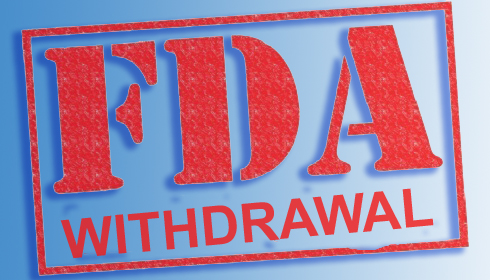
FDA withdraws approval for Pepaxto in a landmark decision
In a first-ever move, the United States Food and Drug Administration (FDA) has announced the immediate withdrawal of its approval for Pepaxto (melphalan flufenamide), a drug previously approved for use in combination with dexamethasone to treat specific patients with multiple myeloma. The decision, issued by Dr. Peter Marks, M.D., Ph.D., Director of the Centre for Biologics Evaluation and Research marks a pivotal moment in the FDA's commitment to upholding the safety and efficacy of approved treatments.
The FDA's decision to withdraw approval is rooted in two critical determinations. Firstly, the confirmatory study conducted as a condition of accelerated approval failed to confirm Pepaxto's clinical benefit. Secondly, the available evidence has indicated that Pepaxto is neither safe nor effective under its specified conditions of use. Dr. Marks, serving as the Commissioner's designee, highlighted these grounds for withdrawal, emphasising the importance of ensuring that FDA-approved treatments meet rigorous standards.
In his comprehensive observation, Dr. Marks, stated, "After reviewing the record and considering the arguments on appeal, I have determined that the grounds for withdrawing approval have been met because: (1) the confirmatory study conducted as a condition of accelerated approval did not confirm Pepaxto’s clinical benefit; and (2) the available evidence demonstrates that Pepaxto is not shown to be safe or effective under its conditions of use."
While withdrawal is not contingent on meeting both grounds, Dr. Marks underscored that both statutory grounds for withdrawal are satisfied in this matter. Additionally, he addressed Oncopeptides' policy arguments, asserting that the FDA should not permit Pepaxto to remain on the market during an additional study assessing the drug's safety and efficacy, whether for a narrower patient population or otherwise.
Dr. Marks acknowledged the potential disappointment for patients who may have exhausted all available treatment options for their condition. However, he firmly stated, "I believe that patients deserve FDA-approved treatments that are safe and effective."
This landmark decision is the first instance where the FDA has employed the amended procedures for withdrawal of accelerated approval enacted in 2023 under the Food and Drug Omnibus Report Act of 2022 (FDORA). In adherence to these new procedures, the FDA provided Oncopeptides with a notice of proposed withdrawal of approval, an explanation for the proposed withdrawal, and an opportunity for a meeting and a written appeal to the Commissioner or any designated representative.
according to available estimates, in 2019, there were 155,688 cases of multiple myeloma worldwide, affecting 84,516 men. The rate of occurrence, known as the age-standardised incidence rate, was 1.92 cases per 100,000 people.
The number of deaths caused by multiple myeloma increased from 51,862 in 1990 to 113,474 in 2019. This is measured by the age-standardized death rate, which was 1.42 deaths per 100,000 people in 2019.
Looking at different regions, high-income countries like Australasia, North America, and Western Europe experienced the highest numbers of cases and deaths. Monaco had the unfortunate distinction of having the highest incidence and mortality rates. On the other hand, the United Arab Emirates and Qatar saw significant growth in both the number of cases and deaths.
Globally, the burden of multiple myeloma has more than doubled in the past 30 years. While the number of cases may continue to rise due to an ageing population, advancements in medical technology could lead to a decrease in the number of deaths.
Managing this health concern requires specific local strategies tailored to the different patterns of burden in each area. Recognising and addressing these patterns is crucial for effectively dealing with the challenges posed by multiple myeloma.
This decisive action by the FDA reflects its unwavering commitment to prioritising patient safety and maintaining the highest standards in drug approval processes. The withdrawal of Pepaxto underscores the agency's dedication to ensuring that approved treatments consistently demonstrate the promised clinical benefits and adhere to stringent safety protocols.